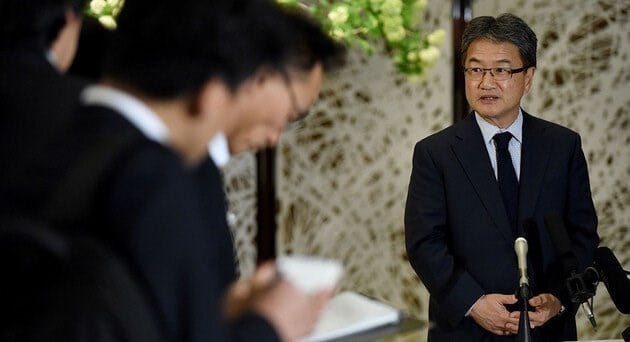US Pacific H-bomb tests leave behind health, environment perils trail
US Presidential Envoy Joseph Yun acknowledges that radiation and damages from the Pacific H-bomb tests still persist, leading to lingering health effects.
-

US Presidential Envoy Joseph Yun speaking at a press conference (AFP via Getty Images)
US Presidential Envoy Joseph Yun stated that the United States maintains a moral obligation to support health care, clean-up efforts, and environmental restoration in the Central Pacific islands. These islands were the site of over 67 nuclear tests carried out by the US after World War II, lasting until the late 1950s.
Yun acknowledged that radiation and damages from the tests still persist, leading to lingering health effects. He believes that the US also bears legal responsibility for its actions during that period.
"Radiation, I believe, is still there. Damages, I believe, are still there. And I believe there are lingering health effects too. I also believe we have a legal responsibility as well for what we did," he said.
Currently, discussions are underway to negotiate US compensation for the health problems and environmental damage caused by these nuclear tests as part of the ongoing compact talks with the Marshall Islands. The tests, which took place between 1946 and 1958, included numerous powerful thermonuclear explosions in places like Bikini Atoll and Enewetak Atoll. The radioactive fallout from these tests affected the entire island chain in the Central Pacific region.
Back in September 2022, the Marshall Islands suspended major discussions with the US over longstanding concerns, stretching back 70 years, pertaining to nuclear testing on the atolls in the middle of the Pacific.
The Marshall Islands have refused to continue discussions unless Washington addresses the persistent health, environmental, and economic difficulties caused by US nuclear testing on the picturesque atolls from 1946 to 1958.
Marshall Islands-US relations
Amid persistent tensions between Beijing and Washington, the Marshall Islands nation is one of the most important US allies in the Pacific.
The US attitude, however, is delaying the pace of the discussions, straining ties between the Marshall Islands and Washington on the eve of next week's summit of Pacific Island leaders at the White House.
The previous 20-year financing arrangement ends by September 2023, therefore, US officials hoped for a quick resolution to the compact talks.
However, the Marshall Islands grievances over nuclear testing continue to be ignored by the US administration.

 2 Min Read
2 Min Read








